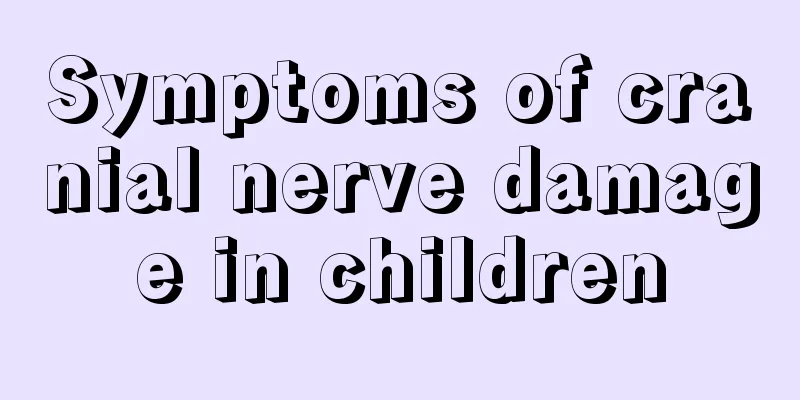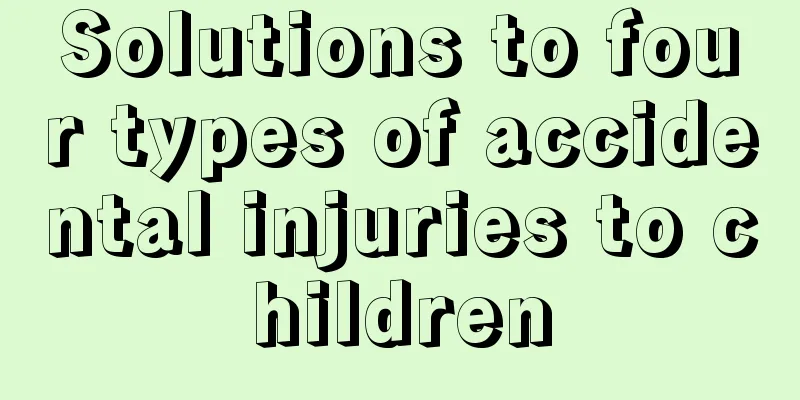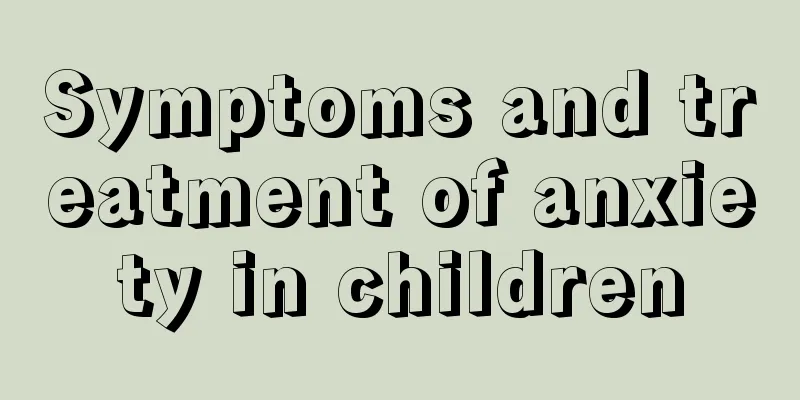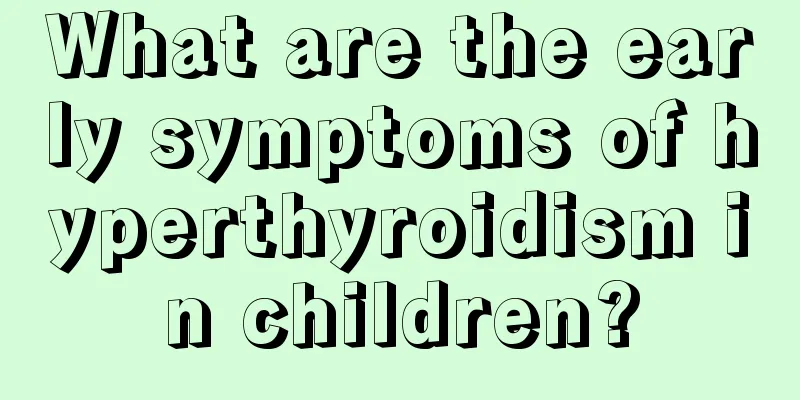Symptoms of cranial nerve damage in children

|
There are numerous cranial nerves distributed in the human brain, and the cranial nerves are a very complex entity. But the brain nerves are also very fragile, especially in infancy. If parents do not pay attention to the care of their baby's brain nerves, it is easy to cause damage to the baby's protective nerves. If the brain nerves are damaged, it will have a great impact on a person's body. So what are the symptoms of brain nerve damage in infants? What is infant brain damage? The term "infant brain nerve damage" is not unfamiliar to everyone. In real life, we can also see some children with intellectual disabilities, abnormal movements, visual and hearing impairments and other problems. Many of them are patients with infant brain nerve damage. So, what exactly is infant brain damage? Infant cranial nerve damage refers to non-progressive cranial nerve damage caused by various reasons from before birth to one year old, including congenital brain hypoplasia, cerebral palsy, and central nervous system dysfunction left by critical illness or trauma in infancy. Current clinical data show that common manifestations of brain nerve damage in infants include neurodevelopmental abnormalities, central movement disorders, mental retardation, epilepsy, visual and hearing impairments, etc. It is understood that the incidence rate of infant brain nerve damage is not high among babies, but it is a very wide-ranging disease, and there are many reasons that can cause infant brain nerve damage. However, with China's current pregnancy health care measures, the increasing attention paid by most Chinese families to their children's diseases, and the improvement of medical equipment for infant treatment, the incidence of infant brain nerve damage has now decreased significantly. Symptoms of brain nerve damage in infants Although the chance of infant brain nerve damage occurring in real life is not very high, the damage caused is often irreversible. Therefore, many families are now increasingly concerned about the symptoms of infant brain nerve damage. What are the common symptoms of brain nerve damage in infants? With proper understanding of this, parents can better reduce the possibility of delaying their baby's treatment. Because there are many reasons that can cause brain nerve damage in infants, the clinical manifestations of the symptoms of brain nerve damage in infants will also vary, and will also have different manifestations at different ages. Infancy: Difficulty in breastfeeding: The baby cannot suck after birth, sucks weakly or refuses to breastfeed, becomes tired and weak after sucking, and is prone to vomiting milk. Weak crying: The baby is very quiet after birth, crying softly or crying continuously. Few spontaneous movements: The baby moves less after birth and is in a weak state. Hypotonia: The whole body is soft and the muscles are relaxed. Increased muscle tone: The whole body becomes stiff and easy to straighten, the lower limbs are strong, the feet can push against the basin when taking a bath, and the lower limbs are difficult to separate when changing diapers. Infantile spasms: Children startle easily, scream or become restless and convulse. Abnormal behavior: head tilted to one side, thumbs clenched inward in the palms. January-March: Adduct both thumbs inward, clench the hands into fists, and retract and internally rotate the upper limbs. Don't pay attention to people, and don't look at faces or toys in front of you. Slow reaction, no response when called, unable to smile or laugh. The head is unstable, the neck cannot be upright, and the head swings from side to side. The trunk is rigidly stretched or the whole body is limp, with an asymmetric posture. 4-5 months: His expression is dull and inflexible, he doesn't respond to being teased, and he can't laugh. Eyes are not flexible, do not track gaze, and are squinting. Unable to roll over, head raised less than 90 degrees in prone position. The hands are not flexible and the person cannot reach out to grab things or only grabs things with one hand. We would like to remind all new parents that once you find that your baby has obviously abnormal behavior compared to babies of the same age, it is best to go to the hospital for a detailed investigation, find out the cause, and give appropriate treatment in time. |
<<: What are the symptoms of baby sweating
>>: Symptoms of baby's formaldehyde allergy
Recommend
How long is the appropriate sleep time for a 22-month-old baby?
The baby's body is particularly weak right af...
What should I do if my baby hasn't had a bowel movement for five days?
Babies do not have much ability to express themse...
Height and weight of a seven-year-old boy
Seven-year-old boys are in a golden stage of grow...
What are some ways to help children concentrate?
Children's learning is an issue that parents ...
How to treat baby's buttocks skin
Every family will have a lovely baby, and the bab...
What is the reason for the heavy breathing sound in children?
When a baby is just born, his respiratory tract a...
Symptoms of delayed physical development in infants
Physical retardation is a manifestation of childh...
What should I do if my child's buttocks itch?
Generally speaking, when a child feels some kind ...
What are some common sense about children's healthy diet?
Children also need to pay special attention to th...
Why do children suffer from ADHD? What factors does ADHD involve?
Under normal circumstances, pregnancy and childbi...
Why does the child keep shaking his head?
Children will develop various symptoms as they gr...
How long does anorexia last in infants?
Over a period of time, young parents find that th...
Why is the baby cold all over?
There are many reasons why a baby may feel cold a...
What should I do if my child suddenly has a fever in the middle of the night?
Now that it is autumn, the temperature difference...
What to do if your child has poor resistance
Children have weaker health and are always catchi...









